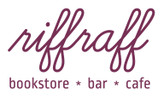Elmiger's breakout novel is a staring contest with History: an effort to map the resonances and frictions introduced to the world by the sugar industry. But can any writing project contain such devastation?
The narrator of Out of the Sugar Factory, Dorothee Elmiger, is a writer and archivist--and possibly a hoarder--of objects and stories that speak to the profound impact of the sugar industry on the world. Seated in the room where her vast collection sprawls across the floor, she obsessively connects a violent global industry to our unsettled present and her own desires. Elmiger's deeply researched and innovative novel brings together subjects as varied as Karl Marx, Chantal Akerman, the Haitian Revolution, and the institutionalization of Ellen West to uncover the vast network of entrenched relationships lurking just below the surface. Out of the Sugar Factory, in Megan Ewing's matchless translation from German, is a prismatic account of a writer's overwhelming need to tell a story that is true, to follow the sugar wherever it may lead.
The narrator of Out of the Sugar Factory, Dorothee Elmiger, is a writer and archivist--and possibly a hoarder--of objects and stories that speak to the profound impact of the sugar industry on the world. Seated in the room where her vast collection sprawls across the floor, she obsessively connects a violent global industry to our unsettled present and her own desires. Elmiger's deeply researched and innovative novel brings together subjects as varied as Karl Marx, Chantal Akerman, the Haitian Revolution, and the institutionalization of Ellen West to uncover the vast network of entrenched relationships lurking just below the surface. Out of the Sugar Factory, in Megan Ewing's matchless translation from German, is a prismatic account of a writer's overwhelming need to tell a story that is true, to follow the sugar wherever it may lead.



